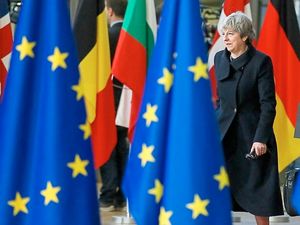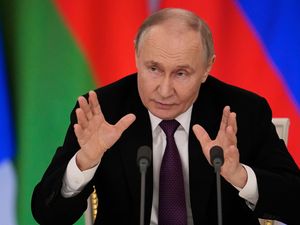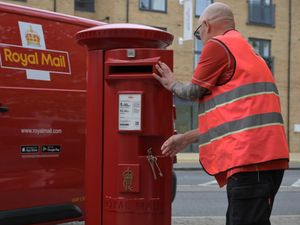Pat McFadden - It is crunch time for the UK’s big Brexit choice
As Brexit talks are about to move onto the ‘business end’ the UK faces a major choice, according to Wolverhampton MP Pat McFadden

With phase one of the EU talks concluded before Christmas, the process moves on to what football managers call the 'business end' of the season.
Round two of these talks will confront the UK with a very big choice.
That basic choice is this – how closely to stay to the EU’s system of economic and social system known as the single market.
The closer we stay to that economic system, the less disruption there is to the economy.
Yet the closer we stay, the more we have to obey the rules and the more the government runs into conflict with its own red lines on Brexit.
The stakes are high. Decades of EU membership have produced a UK economy very closely linked with the rest of Europe.
Many products made in the UK eg cars or the kinds of aerospace products so important to the West Midlands economy will have components that come from many different European countries.
These components might cross borders several times before the product is complete.
All of this at the moment is done on the basis of common rules with no customs checks and minimal paperwork.
And important as these manufactured products are, even bigger for the UK are its service industries like the creative industries, education, financial services, insurance and so on.
These services make up almost half our exports and we trade at a surplus in them with the rest of the EU.
Any future deal therefore has to be judged not just by how goods are treated but services too.
Anything which only secures tariff free access to goods but leaves our world leading service industries out in the cold would be selling Britain short.
These industries don’t just provide employment – the taxes raised from them are vital to fund our NHS, schools and other public services.
Ministers have said their aim is to secure, in David Davis’s words 'the exact same benefits' that we have now in terms of how we trade in both manufactured goods and service industries.
But the Government has also set down red lines saying it wants to leave the single market and customs union and avoid any jurisdiction of the European Court.
So how do Ministers hope to square the circle between keeping the market access we currently have with not being bound by the economic rules of the system?
The Government’s plan is to do this through a Free Trade Agreement.
Yet no free trade agreement in existence gives anything like the market access to the EU that the UK has now.
The most developed Free Trade Agreement the EU has agreed is with Canada.
The EU Canada deal does give tariff free access to most goods (though in some cases with quotas after which tariffs are levied) but very little access to Canadian service industries.
A deal like this would put the UK at a huge disadvantage compared to the way we are able to trade now.
The Government knows this and that’s why Ministers are talking not about Canada but 'Canada plus plus plus'.
The issue will be that the more market access the UK wants, the more it will be asked to stick to the same rules as the rest of the EU.
This isn’t a matter of negotiating stubbornness – it is just how the single market works.
So the choice all along will be, do we diverge from the rules at a cost to our economy or obey them at a cost to the red lines the Government has chosen?
Words matter. Here are a few key ones to note as a guide to this process
First, 'alignment'. In the agreement to end phase one, the Government agreed to have 'full alignment' with the rules to avoid a hard border between Northern Ireland and the Republic of Ireland.
Expect this issue of 'alignment' to come back tenfold in phase two.
Second, 'dumping'.
This is EU speak for diverging on rules like environmental protection, consumer standards or labour laws.
The flip side of alignment if you like. The more market access the EU wants, the more the EU will insist on 'no dumping'.
And thirdly, 'negotiations'. This word implies everything is on the table. But that can be misleading. 2018 is less of a negotiation and more of a big choice.
It looks from the Government’s red lines like it has made its choice. In the next few months we will know for sure.
Pat McFadden is Labour MP for Wolverhampton South East and a member of the House of Commons Select Committee on exiting the EU





